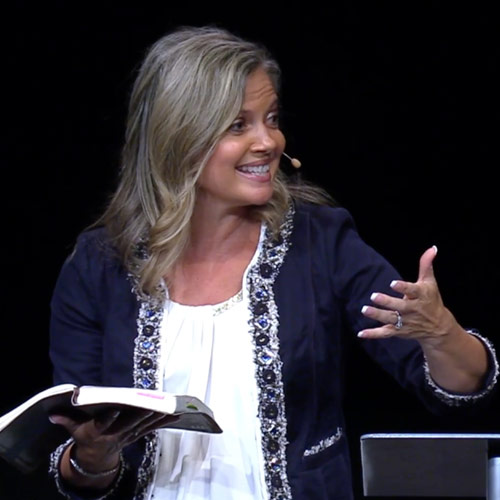Weakness: Your Great Spiritual Weapon
If I must boast, I will boast of the things that show my weakness. 2 Corinthians 11:30
We don’t often like to admit our weaknesses. I spent years trying to hide mine. Let’s face it. We want others to see us as capable, confident and strong. Few of us like to admit our vulnerabilities to ourselves, never mind acknowledge them to others.
Have you ever thought about why? Seriously. Have you ever taken time to contemplate what’s behind the world’s disdain for weakness?
Perhaps you’ve never considered this thought before: The notions of this world are established by its prince (John 12:31, John 16:11). Satan himself pulls the strings to set up the ideals that govern this world. And he has decided that we should fear, despise and cover our weakness.
Why is he so intent on crushing weakness and promoting self-sufficiency?
Beloved, the enemy fears your camaraderie with weakness because he understands that your weakness holds the key to unlocking God’s strength. God reveals and perfects His power in weakness.
But he said to me, “My grace is sufficient for you, for my power is made perfect in weakness.” Therefore I will boast all the more gladly about my weaknesses, so that Christ’s power may rest on me. 2 Corinthians 12:9
Dear one, your weakness might be the greatest spiritual weapon you possess in your arsenal. It is through your weakness—not your strength—that Christ’s power comes to rest on you.
As followers of Jesus, you and I have been given a great gift. We house the Holy Spirit within us, the same Spirit who raised Jesus from the dead (Ephesians 1:19-20).
2 Corinthians 4:6-7 teaches,
For God, who said, “Let light shine out of darkness,” made his light shine in our hearts to give us the light of the knowledge of God’s glory displayed in the face of Christ.
But we have this treasure in jars of clay to show that this all-surpassing power is from God and not from us.
You, my friend, are a jar of clay housing the light of the glory of God.
The enemy tries to keep our attention firmly fixed on the clay jar. He whispers that our value is found in its strength. And he keeps us very concerned with its appearance.
But when we look closely at our clay shells, we see obvious evidence of wear and weakness. Life’s hardships have left us with tiny chips and cracks that have sapped our strength. Things like rejection, abuse, loss and disappointment have conspicuously left their mark.
And we have been taught to despise weakness, so we work hard to cover them up. We busily camouflage our chips and cracks with polish and pretense, trying to maintain the appearance of a perfect vessel, a vessel the world accepts.
What we fail to realize is that every crack in our pottery provides a place for the light of the Spirit within us to escape and be seen. Our weak places allow for the release of God’s power.
What if we stopped trying to repair and maintain our own jars of clay and surrendered them instead into the care of the Potter? What if we began to acknowledge our cracks and stopped trying to cover them? What if we even went so far as to break the jar?
Gideon knows a thing or two about the power released from a broken jar. Perhaps you’ve heard his story. God found him threshing wheat in a wine press, hiding in fear from Israel’s enemies. He called him a mighty warrior and then used weakness to defeat strength. He led him to victory over the vast Midianite army with only 300 soldiers.
You might be surprised at the weapons God instructed them to use. The men didn’t carry swords and shields. Instead,
. . . he placed trumpets and empty jars in the hands of all of them, with torches inside. Judges 7:16
Do you know how Gideon’s army defeated the enemy? They sounded the trumpets and shattered the jars, revealing the torchlight hidden within them. The enemy saw the light from the torches surrounding their camp and fled in confusion. Then,
. . . the Lord caused the men throughout the camp to turn on each other with their swords. (verse 22)
The value of the jars didn’t come from their appearance or their strength. They had value in the battle because they were easily broken. And their weakness allowed for the true weapon to show itself. Their frailty revealed the light within.
Beloved, the enemy does not tremble at the sight of your clay pot. But, oh, how he trembles at the light he knows you carry inside.
For the foolishness of God is wiser than human wisdom, and the weakness of God is stronger than human strength. 1 Corinthians 1:25
Our fear of weakness has done exactly what Satan intended it to: it has made us weak.
Are you ready to trust God with brokenness? You may just be amazed at the power you see unleashed.


